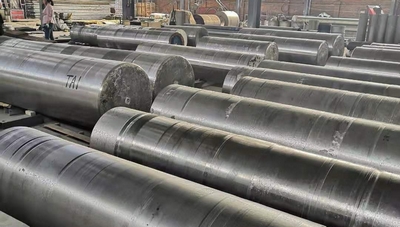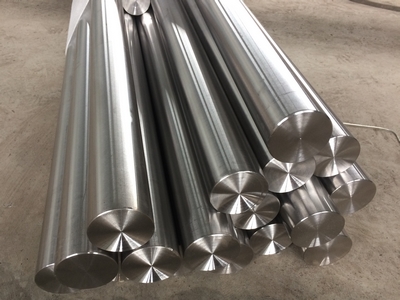GR5 titanium alloy, also known as TC4 titanium alloy, we also call it 6Al4V, which is the most widely used titanium metal, usually we use titanium alloy refers to it. It has good forerunner and elongation.
Titanium and its alloys have many excellent properties, such as light weight, high strength, strong heat resistance, corrosion resistance and so on. They are known as “future metals” and are new structural materials with development prospects. Titanium and its alloys not only have very important applications in aviation and cosmic industries, but also have been widely used in many industrial sectors such as chemical industry, petroleum, light industry, metallurgy, power generation and so on. Titanium can resist the corrosion of human body and does no harm to human body. Therefore, it can be widely used in the medical and pharmaceutical industries. Titanium has good gas absorption performance and is widely used in electronic vacuum technology and high vacuum technology.


Ten Properties of GR5 Titanium Alloy
- Low density and high specific strength
Titanium metal has a density of 4.51g/cubic centimeter, higher than aluminium and lower than steel, copper and nickel, but its specific strength is the highest among metals.
- Corrosion resistance
Titanium is a very active metal. Its equilibrium potential is very low and its thermodynamic corrosion tendency in medium is high. But in fact, titanium is very stable in many media, such as oxidizing, neutral and weak reductive media. This is because titanium and oxygen have a great affinity. In air or medium containing oxygen, a dense, strong adhesion and inert oxide film is formed on the surface of titanium, which protects the titanium matrix from corrosion. Even due to mechanical wear, it can quickly self-heal or regenerate. This indicates that titanium is a metal with strong passivation tendency. Titanium oxide films at medium temperatures below 315 keep this characteristic all the time.
In order to improve the corrosion resistance of titanium, surface treatment technologies such as oxidation, electroplating, plasma spraying, ion nitriding, ion implantation and laser treatment have been developed, which have enhanced the protection of titanium oxide film and achieved the desired corrosion resistance. A series of corrosion-resistant titanium alloys, such as Ti-Mo, Ti-Pd, Ti-Mo-Ni, have been developed to meet the needs of metal materials in the production of sulphuric acid, hydrochloric acid, methylamine solution, high temperature wet chlorine and high temperature chloride. Titanium castings are made of Ti-32 molybdenum alloy. Ti-0.3 molybdenum-0.8 nickel alloy or Ti-0.2 palladium alloy are used locally in the environment where crevice corrosion or pitting corrosion often occurs. Good results are obtained.
- Good heat resistance
The new titanium alloy can be used for a long time at 600 C or higher.
- Good low temperature resistance
Low temperature titanium alloys, such as titanium alloy TA7 (Ti-5Al-2.5Sn), TC4 (Ti-6Al-4V) and Ti-2.5Zr-1.5Mo, have higher strength with lower temperature, but less plastic change. It is an ideal material for cryogenic containers, tanks and other equipment to maintain good ductility and toughness at low temperatures of – 196 – 253, avoiding cold brittleness of metals.
- Strong Damping Resistance
Compared with steel and copper, titanium has the longest vibration attenuation time when it is subjected to mechanical and electrical vibration. This property of titanium can be used as vibration element of tuning fork, medical ultrasonic pulverizer and vibration film of advanced loudspeaker.
- Non-magnetic and non-toxic
Titanium is a non-magnetic metal, which will not be magnetized in a large magnetic field. It is non-toxic and has good compatibility with human tissues and blood, so it is adopted by the medical profession.
- Tensile strength is close to yield strength.
This property of titanium shows that its yield strength ratio (tensile strength/yield strength) is high, which indicates that the plastic deformation of titanium metal is poor during forming. Because the ratio of yield limit to elastic modulus of titanium is large, the resilience of titanium during forming is great.
- Good heat transfer performance
Although the thermal conductivity of titanium is lower than that of carbon steel and copper, the wall thickness of titanium can be greatly reduced due to its excellent corrosion resistance, and the heat transfer mode between surface and steam is dropwise condensation, which reduces the heat group and the thermal resistance can also be reduced if the surface is too non-scaling, so that the heat transfer performance of titanium can be significantly improved.
- Low modulus of elasticity
The elastic modulus of titanium at room temperature is 106.4 Pa, which is 57% of that of steel.
- Inhalation performance
Titanium is a metal with very active chemical properties. It can react with many elements and compounds at high temperature. Titanium gas absorption mainly refers to the reaction with carbon, hydrogen, nitrogen and oxygen at high temperature.
